- Home
- Melissa de la Cruz
Lost In Time (Blue Bloods Novel) Page 3
Lost In Time (Blue Bloods Novel) Read online
Page 3
THREE
Beatrice
Allegra Van Alen had visited San Francisco many times in her past life cycles, yet had avoided the city in her current one, almost as if she were allergic to it. Whenever Conclave business had called for a trip out West, she’d always found a way to wriggle out of it, find someone to take her place, or a way to handle issues by conference calls.
But now that she was twenty-one years old, and, in the fall of 1989, newly awakened to her full memories and powers, she did not see the harm. She had graduated from college in the spring, standing tall and proud with her brother at the dais, clutching her alumni pin (diplomas would be given out later through the registrar). Amazing that she had accomplished that much, considering her high school education had been cobbled together from a jumble of prep schools of varying academic reputation. After abruptly leaving Endicott Academy her junior year, she had refused to return to Duchesne, and instead had aimlessly hopped around the Northeastern private-school corridor, sometimes switching midsemester on a whim.
Cordelia had been certain there was no way Allegra would gain admittance into the prestigious university that had just rolled out the red carpet for Charles. But her mother had somehow forgotten the power of a fancy name, or the pull of the family’s illustrious history (along with its generous donations over the years), and an acceptance letter had been sent. College had been a blur of parties and drama, and Allegra had thrown herself into campus life with gusto, showing an energy and motivation that had eluded her during her peripatetic high school years. It was as if she was finally getting over the terrible mistake she had made at Endicott—of falling in love with her human familiar and putting her bond at risk. Allegra had accepted her destiny and position in Blue Blood society, and Charles was pleased.
It would not be long before she would be bonded to her twin and claim her rightful heritage. Allegra was looking forward to another productive lifetime with Charles, the two of them leading the way, setting examples for the rest of their kind, as they had done since the beginning of time. They had had many names over the years—Junia and Cassius, Rose and myles—but they would always be Michael and Gabrielle, protectors of the Garden, the Uncorrupted, Archangels of the Light.
She was in San Francisco because of Charles. The two of them were rarely apart these days, and when he’d asked her to come with him, she’d said yes. He’d left early that morning to meet with a group of local Elders about an emergency concerning their newest batch of vampires. Allegra had been worried, but Charles had assured her it was probably nothing but the usual issues that came with Transformation. There were always a few kinks here and there: some would awake to the memories too early, causing confusion or catatonia; others would have trouble controlling their bloodlust. The Elders were a jittery bunch.
Allegra and Charles were staying in Nob Hill, in one of the many luxurious apartments and residences around the globe that were now at their disposal as heads of the Coven. Since she had time alone, Allegra had decided to spend the afternoon wandering around the pretty neighborhood, reacquainting herself with the hilly streets, doing a little shopping, pausing to admire the view. She’d crossed Union Square and wandered into a tiny jewel box of an alley called maiden Lane—a charming side street filled with small boutiques and art galleries. She walked inside the nearest one.
The gallery assistant, a chic dark-haired girl wearing red-rimmed spectacles and a spare black dress with an interesting neckline, greeted her upon arrival. “Hi there. We just put the show up. Feel free to look around.”
“Thanks,” Allegra said, thinking she would just have a quick peek around the place. Charles was the one who collected art; he’d started as a boy and had built an impressive collection over the years. His taste ran toward what was currently popular and expensive—he bid heavily on the trendy artists of the day. Their mansion back in New York was filled with Schnabels and Basquiats, paintings strewn with broken crockery and street-style graffiti. She could understand their value, but the pieces were not something she cared to live with for the rest of her life.
The Vespertine Gallery seemed to specialize in the new wave of realistic paintings, and Allegra examined several portraits before a particular one caught her eye. It was a tiny little canvas, five inches square, and the painting was of a teenage girl sitting on a hospital bed, with her head in a bandage. Allegra looked at it again, not quite believing what she was seeing. It was all there—the plate of cookies, the wicker furniture. The girl had a bemused smile on her face, as if she couldn’t quite understand what she was doing in a hospital. The painting referenced religious iconography—a golden halo surrounded the girl’s head, and the bright colors of the room were painted in a style similar to illustrations found in medieval prayer books, with delicate images of saints and angels. The painting was called Always Something There to Remind Me.
Allegra gasped and turned bright red, feeling as if someone were playing a cosmic joke on her, and she almost stumbled on her heels as she turned away from the piece. It couldn’t be… could it? But it had to be…. That song had been a secret joke between them….
“Do you know his work?” the pretty young gallery assistant asked, suddenly appearing at her elbow. The girl had an obsequious smile on her face, as if she instinctively knew when “looking” turned into “shopping.”
“I’m not sure I do,” Allegra said, her heart pounding underneath her thin cashmere sweater. Her face felt hot and her mouth had turned dry. “What’s his name?”
“Stephen Chase. He’s a local. Got a rave review from Art Forum on his show last season. Amazing work. Everyone is talking about it. He’s made quite a splash.”
Allegra nodded, unable to do more than that at the moment. Stephen Chase. Now, there was a name she would never forget, although when she’d known him he’d gone by his middle name, Bendix. It was Ben’s painting, of course. She knew it the minute she’d seen it. “How much?” she asked, before she could think it over. But there was no doubt. Once she saw the painting, she had to buy it.
The gallery assistant named a tidy sum, and murmured something about extra fees for framing and shipping services, should they be required.
“I’ll take it,” Allegra said, rooting around in her pocketbook for her credit card. “And I’d like to take it now. With me, I mean.”
“How wonderful! It’s an amazing piece. Congratulations. But I’m afraid I can’t let you have it just yet. The show runs until next month, and we’ll be shipping everything to the buyers after. I hope that’s all right?”
Allegra nodded, even though she was disappointed. She had wanted to own it right then, tuck it into her suitcase and spirit it away so she could study it in private.
Everything from that fateful year came flooding back. Ben had not forgotten her after all. The painting was from the day they’d met—the day she’d been hit on the head with a field hockey ball and had been sent to the clinic. They had been roommates of a sort, sharing the same television. He had broken his leg, she remembered now, and had asked the field hockey team—her team—to sign his cast. It all returned to her in a flash as if it were yesterday.
“How long are you in town?” the assistant asked, as she ran Allegra’s credit card and checked her ID.
“We leave tomorrow.”
“Too bad. There’s a dinner party for him on Saturday night, and he loves meeting his patrons.”
Allegra’s mind raced. She could ask Charles if they could stay for a few more days. He had mentioned wanting to attend the opening of the new Olmec exhibit at the de Young. Of course he would want her to accompany him, but perhaps she could manufacture some sort of excuse and slip away to the party instead.
“My schedule is flexible,” she told the clerk. “And I would like to thank him for this piece….”
The gallery girl gave Allegra the address, writing it down on her receipt. “Wonderful! He’ll be thrilled.”
Allegra was not sure if “thrilled” was the right word. She remembered
the last time she’d seen Ben: it was the first time she had marked him as her familiar, the first time she’d drunk his blood and taken him for her own. Then she’d disappeared off the face of the earth. She never thought she would see him again. Correction—she had hoped she would never see him again. Not after the terrible vision she’d seen of their future—a future she’d been running from for the last five years.
Every fiber of her immortal being, and all the knowledge she carried in her soul, told her to hop on the next plane out of the city. It was dangerous to see Ben again. She had fallen for him once, and her heart was in the right place now. She loved Charles, and they would renew their bond as they had since the beginning of time—since they had journeyed from Heaven’s kingdom to bring hope to the Fallen. Her heart was pledged to love her twin, as before, and yet it was this same stubborn heart that argued to stay, that would not let her leave.
She would see Ben on Saturday night, she was sure of it. If there was such a thing as destiny, Allegra felt it pulling her in a new direction, one that would lead her far from the life she had planned, far from the Coven and the angel she had loved for eternity. Allegra thought she would feel tormented with anxiety and guilt, but instead, as she left the gallery, she felt a strange emotion—one she had not felt in a very long time: she felt happy.
FOUR
Knives in the Market
The zambezi rest stop was unlike any Schuyler had ever seen. Not only was it a sprawling complex of restaurants and parks, with groups of large families picnicking in the grass, enjoying the afternoon air, but it also housed a full African-style safari. The affable staff explained that zoos were now common in a number of rest stops catering to the commuter crowd that traveled between Egypt’s largest cities. The owner had designed this one to mimic the African veldt, complete with zebras and lions.
“Apparently on Friday afternoons there’s a lion hunt,” Jack said, reading the brochure. “They put a pig in the lion pen, and the lioness—”
“Stop!” Schuyler said, trying not to laugh. “That’s horrible.”
They smiled and held hands across the table, careful not to display any more public affection than that. Schuyler’s ability to shift her features, along with her many-layered wardrobe, let her blend in easily, especially with the black silk scarf around her hair. During her time in Egypt she had noticed that not every girl chose to veil, although of course there were some women in full head-to-toe burkas. But most wore stylish brightly colored head scarves with regular jeans and long-sleeve T-shirts. The wealthy women dripping with jewels had sleek salon blow-dried hair, and did not wear scarves at all. The only inconvenience Schuyler had found living in Egypt was that she could not travel alone without taking on the appearance of an older woman, which tired her. Not that it was dangerous, but young women simply did not walk the streets by themselves. They either traveled in groups or with a male relative. Schuyler and Jack wanted to call as little attention to themselves as possible, so they tried to follow the local customs.
They finished their late lunch at the rest stop and were back on the road, fighting the crazy traffic once again.
When they arrived in the city, Schuyler found Cairo as overwhelming as she had the first time they’d arrived in the country, the streets and sidewalks extremely crowded, loud, and polluted, teeming with people and cars and the incessant honking of horns. With some difficulty, Jack returned their car to the rental shop, and they found a cab to take them to a hotel. Since they were trying to be careful with money, they headed downtown, where Schuyler had heard there were more affordable options, rather than the high-end hotels along the east and west banks of the Nile. The budget hotels were located in old dilapidated apartment buildings on busy, noisy streets. There were several grubby backpacker dives that Jack rejected, although Schuyler told him she did not mind. Finally they settled upon a small hotel on a relatively quiet block, whose lobby looked cleaner than the others around it.
Jack rang the bell, and after a long wait, a sleepy manager appeared from a back room. “Yes? How can I help you?” he asked grumpily.
“We’d like a room,” Jack said. “Would you have any available, sir?”
“For how long?”
“A week for now, maybe more. Is that all right?”
“She is your wife?” the clerk asked, casting a suspicious eye on Schuyler.
“Yes,” Jack said tersely. He held up his bonding ring so the clerk could see it better. Schuyler tried to look modest and demure as the clerk eyed her warily. Jack rapped on the counter. “Will this be a problem, sir?” His voice was polite, but Schuyler could sense the annoyance behind it. She knew Jack did not like using the compulsion on humans, but it had been a long drive and he was getting irritable.
After taking a long time counting their cash, the clerk finally produced a key and led them to the second level. The room was plain but clean, and Jack and Schuyler went straight to bed so they could be up early the next morning.
The next day, Jack set off to speak to members from the local Coven. “I’m going to make a few calls. See if I can find anyone who can help us track down leads about Catherine,” he said. “You rest for a bit. You look tired, love.” He kissed her and was out the door. With his blond hair hidden in a cap and his green eyes shielded in wraparound sunglasses, dressed in light khakis and a white Oxford shirt, he looked capable and ready; yet Schuyler felt fearful for him. She knew he would be safe—as Abbadon, he was the one everyone should be afraid of—but she could not help it, she was afraid for his life. She knew she’d done the right thing in helping him change his mind about meeting the blood trial, but she worried it would not be enough—that somehow, some way, Jack would be snatched away without warning, and she would never see him again.
While he was out, Schuyler studied the rest of her grandfather’s journals. She could never read them without missing Lawrence. She could imagine him prodding her, challenging her to find the real, hidden meaning behind the cryptic words. “Usually what we are looking for is right in front of us,” was one of his favorite maxims.
Jack returned in the afternoon. He removed his hat and rubbed his eyes. “The Conclave’s headquarters has been abandoned. But I was able to track down a human Conduit who used to serve an old friend of mine. He said the Coven has been under attack for the last month and the vampires are getting ready to leave the city. Bad news all around.” He looked despondent for a moment. The news that another Coven was going underground was hard to hear, Schuyler knew. “Anyway, I asked him if he’d ever heard of someone called Catherine of Siena. It was a long shot, but sometimes legends last a long time in older parts of the world.”
“So you found her?” Schuyler said hopefully.
“Maybe. He gave me a name: zani, a holy woman with a huge following. We’re meeting a guide who can take us to her temple at the souk in an hour.” He looked at her directly. “There’s something else.”
“What is it?” Schuyler asked, her inner alarm bells ringing, as Jack looked so somber.
“I think my sister is here. I can feel her…. She’s looking for something.”
Schuyler rushed to his side. “Then we’ll go.”
“No,” Jack said. “Somehow I sense she’s not here for me.”
“We can’t risk it….”
“Yes we can,” he said gently. “I am not afraid of Mimi or her wrath. We will meet with the holy woman. You will find your gatekeeper.”
They set off, navigating their way on foot through the topsyturvy streets of Cairo, where there were no crosswalks, traffic lights, stop signs, nor turn lanes; and along with the cars, buses, and rickety microbuses, the roads were clogged with donkey and horse carts, bikes and scooters headed in opposite directions. Just as on the highway, everyone on the streets pushed and shoved their way through. Schuyler noticed a car in the middle of the road, its owner fixing a flat tire—he had not thought to move it to the side, and so everyone else had to go around him. Using their vampire speed, they quickly zigzagged
through vehicles, and arrived at the marketplace in good time.
The Khan el-Kalili was a winding labyrinthine souk that was once the center of commerce in Cairo during the middle Ages, but now mostly existed to serve the tourist community, with dozens of shops selling Pharaonic memorabilia and Egyptian trinkets: scarabs, crystal pyramids, Queen Nefertiti tea sets, and gold and silver cartouches with your name inscribed in hieroglyphics. Formerly organized into districts, the shops were now mostly jumbled together, with rug merchants next to computer shops. Only the goldsmiths, coppersmiths, and spice dealers still kept to their historic places.
Schuyler walked quickly, matching Jack’s pace, attempting to ignore the peddlers who thrust their wares in her face and tried to persuade her to come inside their shops. She would not let him out of her sight. He was convinced Mimi was not after him, but Schuyler was not as certain, and she didn’t trust Mimi to leave them alone. They tried to stay together, but the crowd was dense and they were often separated by the aggressive shopkeepers who came between them, holding up an “authentic” trinket of some sort.
“Very pretty very pretty ring yes? From authentic jade stone. One hundred percent made in Egypt!”
“No, sorry,” Schuyler said, trying to hold on to Jack’s hand and feeling his fingers slipping from her grasp as a shopkeeper inserted himself between them.

 Gates of Paradise
Gates of Paradise Someone to Love
Someone to Love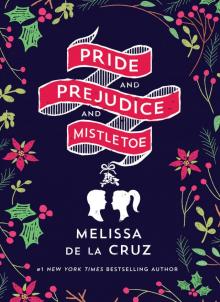 Pride and Prejudice and Mistletoe
Pride and Prejudice and Mistletoe Serpent's Kiss
Serpent's Kiss The Au Pairs
The Au Pairs Wolf Pact
Wolf Pact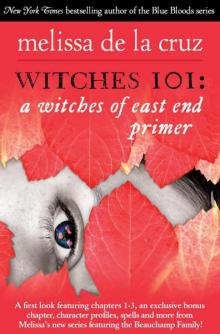 Witches 101: A Witches of East End Primer
Witches 101: A Witches of East End Primer Jealous?
Jealous?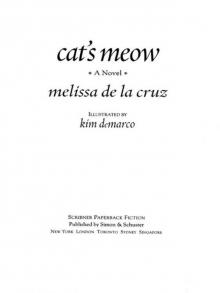 Cat's Meow
Cat's Meow Misguided Angel
Misguided Angel Birthday Vicious
Birthday Vicious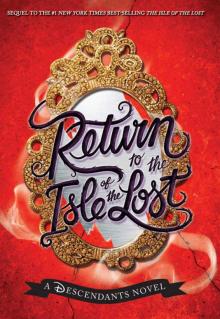 Return to the Isle of the Lost
Return to the Isle of the Lost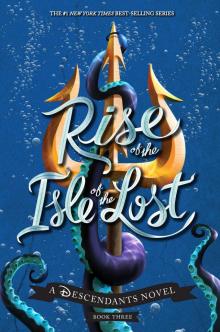 Rise of the Isle of the Lost
Rise of the Isle of the Lost Angels on Sunset Boulevard
Angels on Sunset Boulevard Double Eclipse
Double Eclipse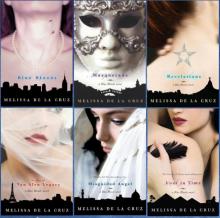 Blue Bloods
Blue Bloods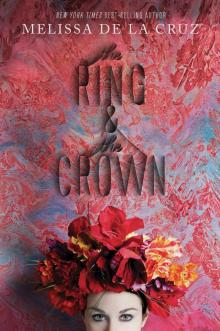 The Ring and the Crown
The Ring and the Crown The Ashleys
The Ashleys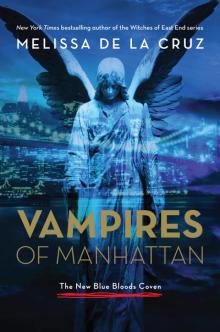 Les vampires de Manhattan
Les vampires de Manhattan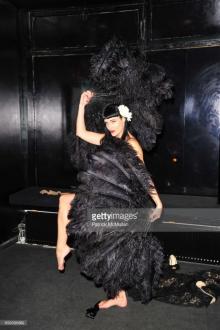 The Van Alen Legacy
The Van Alen Legacy Sun-Kissed
Sun-Kissed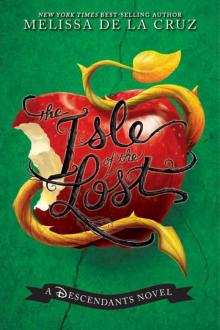 The Isle of the Lost
The Isle of the Lost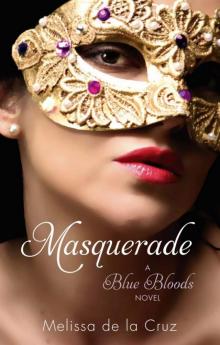 Masquerade
Masquerade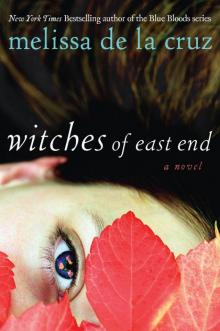 Witches of East End
Witches of East End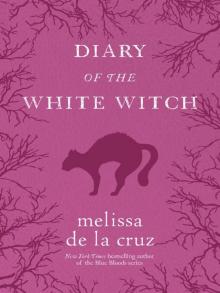 Diary of the White Witch
Diary of the White Witch Crazy Hot
Crazy Hot Lost in Time
Lost in Time White Nights: A Vampires of Manhattan Novel
White Nights: A Vampires of Manhattan Novel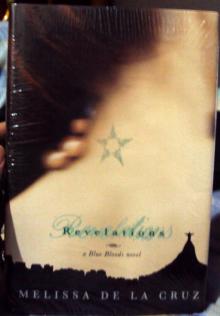 Revelations
Revelations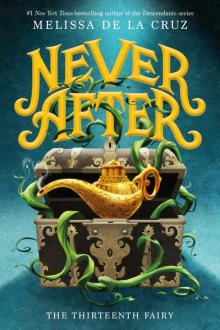 The Thirteenth Fairy
The Thirteenth Fairy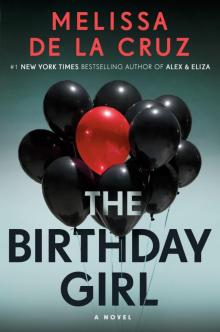 The Birthday Girl
The Birthday Girl Lip Gloss Jungle
Lip Gloss Jungle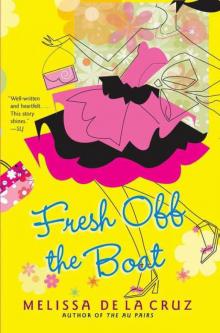 Fresh Off the Boat
Fresh Off the Boat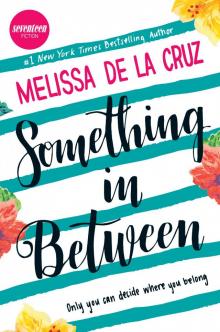 Something in Between
Something in Between Winds of Salem
Winds of Salem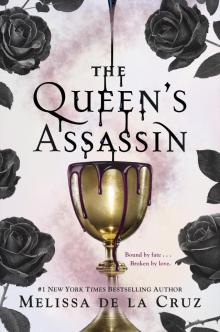 The Queen's Assassin
The Queen's Assassin Love & War
Love & War Social Order
Social Order Skinny Dipping
Skinny Dipping 29 Dates
29 Dates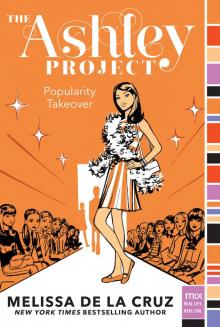 Popularity Takeover
Popularity Takeover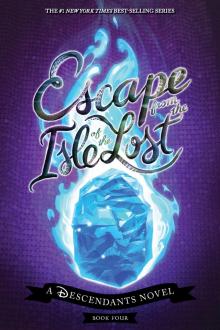 Escape from the Isle of the Lost
Escape from the Isle of the Lost Beach Lane
Beach Lane Bloody Valentine
Bloody Valentine All for One
All for One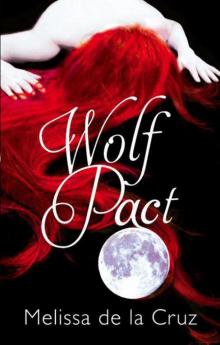 Wolf Pact: A Wolf Pact Novel
Wolf Pact: A Wolf Pact Novel The au pairs skinny-dipping
The au pairs skinny-dipping Lip Gloss Jungle (Ashleys)
Lip Gloss Jungle (Ashleys) Crazy Hot (Au Pairs)
Crazy Hot (Au Pairs) Because I Was a Girl
Because I Was a Girl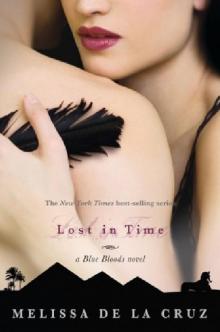 Blue Bloods 6 - Lost in Time
Blue Bloods 6 - Lost in Time Sun-kissed (Au Pairs, The)
Sun-kissed (Au Pairs, The)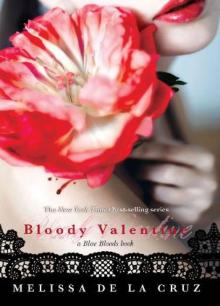 Bloody Valentine bb-6
Bloody Valentine bb-6 Golden
Golden Lost in Time_A Blue Bloods Novella
Lost in Time_A Blue Bloods Novella Alex and Eliza--A Love Story
Alex and Eliza--A Love Story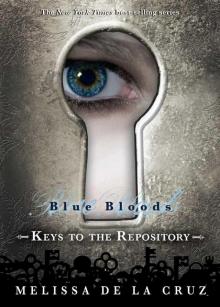 Blue Bloods: Keys to the Repository
Blue Bloods: Keys to the Repository Birthday Vicious (The Ashleys, Book 3)
Birthday Vicious (The Ashleys, Book 3)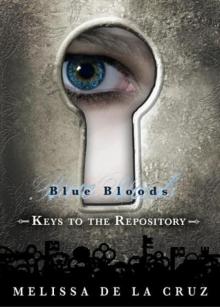 Keys to the Repository
Keys to the Repository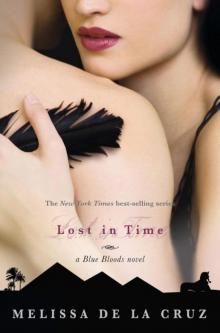 Lost In Time (Blue Bloods Novel)
Lost In Time (Blue Bloods Novel) Stolen
Stolen Girls Who Like Boys Who Like Boys
Girls Who Like Boys Who Like Boys the au pairs crazy hot
the au pairs crazy hot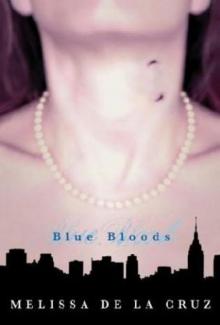 Blue Bloods bb-1
Blue Bloods bb-1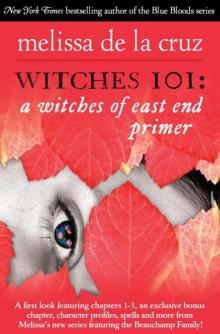 Witches 101
Witches 101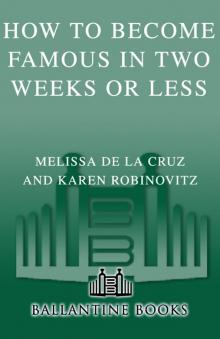 How to Become Famous in Two Weeks or Less
How to Become Famous in Two Weeks or Less Frozen hod-1
Frozen hod-1 Jealous? (The Ashleys, Book 2)
Jealous? (The Ashleys, Book 2) Misguided Angel (Blue Bloods)
Misguided Angel (Blue Bloods) Winds of Salem: A Witches of East End Novel
Winds of Salem: A Witches of East End Novel The Gates of Paradise
The Gates of Paradise Beach Lane Collection
Beach Lane Collection Wolf Pact, The Complete Saga
Wolf Pact, The Complete Saga Gates of Paradise, The (Blue Bloods Novel)
Gates of Paradise, The (Blue Bloods Novel)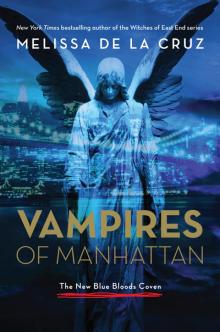 Vampires of Manhattan
Vampires of Manhattan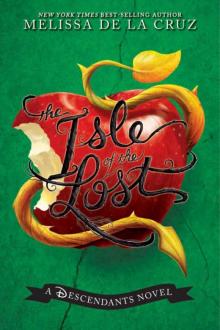 Isle of the Lost
Isle of the Lost Love & War_An Alex & Eliza Story
Love & War_An Alex & Eliza Story The Ashley Project
The Ashley Project Love & War--An Alex & Eliza Story
Love & War--An Alex & Eliza Story